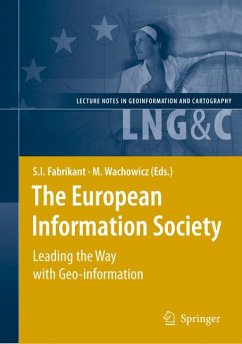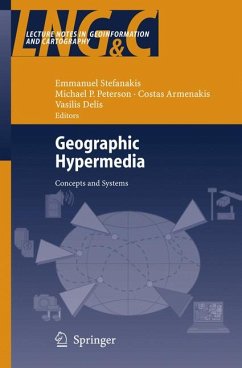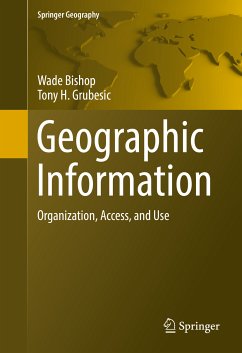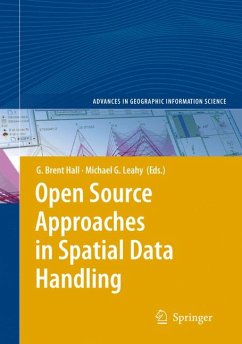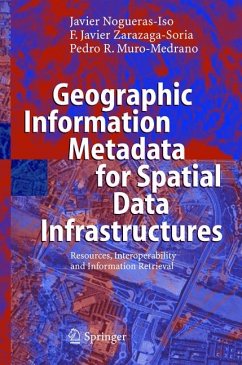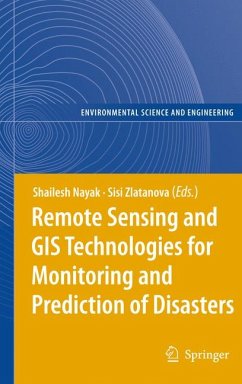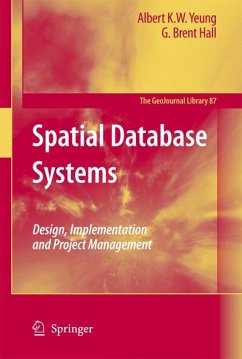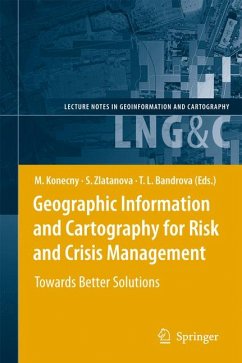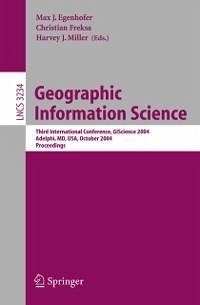
Geographic Information Science (eBook, PDF)
Third International Conference, GI Science 2004 Adelphi, MD, USA, October 20-23, 2004 Proceedings
Redaktion: Egenhofer, Max J.; Miller, Harvey J.; Freksa, Christian
Versandkostenfrei!
Sofort per Download lieferbar
40,95 €
inkl. MwSt.
Weitere Ausgaben:

PAYBACK Punkte
20 °P sammeln!
This section gives a description of notions used throughout this study. Current achievements in developing action-centered ontologies are also discussed. 2.1 Ontologies In the context of information extraction and retrieval, different kinds of ontologies can be distinguished [15]: . Top-level ontologies describe very general concepts like space and time, not depending on a particular domain, . Domain ontologies and task ontologies describe the vocabulary related to a generic domain or kind of task, detailing the terms used in the top-level ontology, . Application ontologies describe the concep...
This section gives a description of notions used throughout this study. Current achievements in developing action-centered ontologies are also discussed. 2.1 Ontologies In the context of information extraction and retrieval, different kinds of ontologies can be distinguished [15]: . Top-level ontologies describe very general concepts like space and time, not depending on a particular domain, . Domain ontologies and task ontologies describe the vocabulary related to a generic domain or kind of task, detailing the terms used in the top-level ontology, . Application ontologies describe the concepts that depend on the particular domain and task within a specific activity. Several investigations have been conducted to bring actions (tasks) to bear on - tologies. Among them are Chandrasekaran et al. [6] and Mizoguchi et al. [23] in the fields of AI and Knowledge Engineering. For the geospatial domain, Kuhn [21] and Raubal and Kuhn [26] have attempted to support human actions in ontologies for transportation. Acknowledging the importance of human actions in the geographic domain, a research workshop was held in 2002, bringing together experts from diff- ent disciplines to share the knowledge and work on this issue [1]. Camara [5], one of the workshop participants, has proposed that action-driven spatial ontologies are formed via category theory, for the case of emergency action plans.
Dieser Download kann aus rechtlichen Gründen nur mit Rechnungsadresse in A, B, BG, CY, CZ, D, DK, EW, E, FIN, F, GR, HR, H, IRL, I, LT, L, LR, M, NL, PL, P, R, S, SLO, SK ausgeliefert werden.





